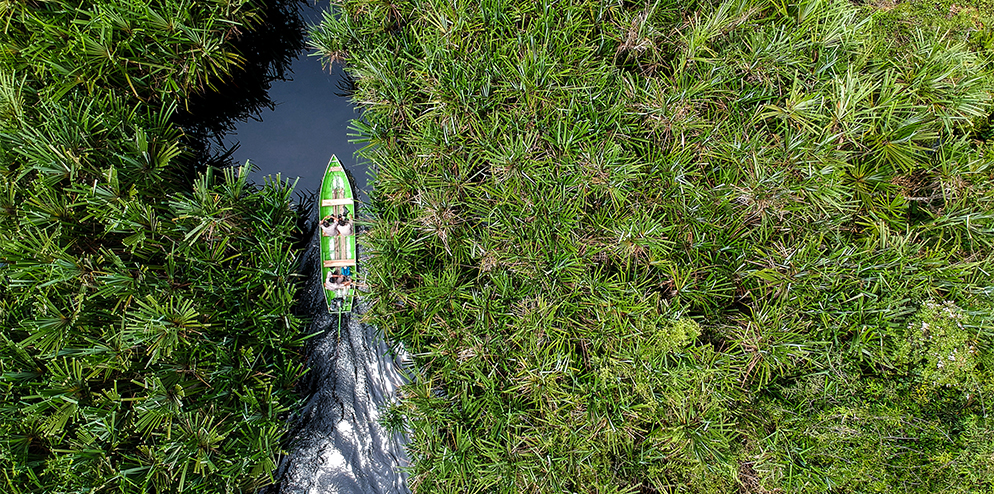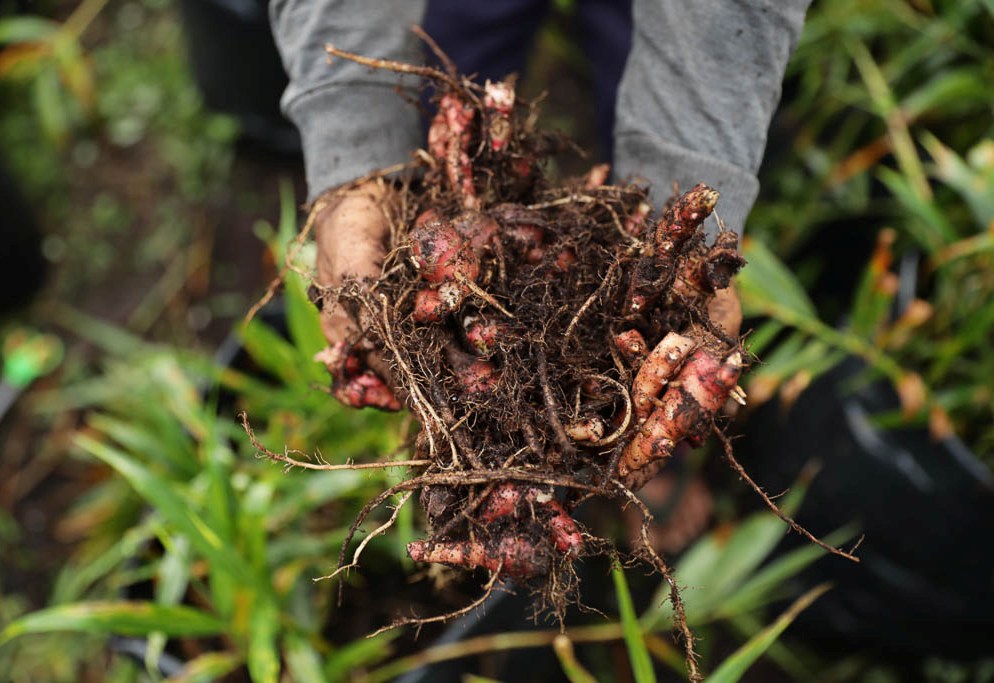March 03, 2021
Every year, March 3 is celebrated as World Wildlife Day. This year the United Nations has selected “Forest and Livelihoods: Sustaining People and the Planet” as the theme to highlight the relationship between forests and the livelihoods of millions of people.

Forests provide precious ecosystem services from regulating climate to storing clean water, from serving as important carbon reservoir to preventing floods, from providing invaluable biodiversity to sustaining millions of people’s livelihood. It is only fitting that we protect, respect and appreciate the forest and its inhabitants.
Since its establishment in 2013, RER has been protecting and restoring one of the most fragile yet important peat swamp forest ecosystem in Kampar Peninsula and Padang Island, Riau. The work that RER has done would not be possible without the support of the local communities , who have been integral in the efforts.

To celebrate World Wildlife Day 2021, we would like to share the perspectives of some of the people who live in and around the forest.
Syaeroji, casually known as Oji, works with RER as BIDARA’s Community Organiser, and has spent a long time living with the local people in Kampar Peninsula. He learned that the forest provides everything to sustain their lives and livelihoods, and believes that it is our task to manage these gifts well and protect them.
Throughout his work with BIDARA and RER, he has helped numerous communities to improve their livelihood sustainably and in harmony with the forest. He assist them in no-burn farming, home industry development, and establishing local institutions to support their livelihood.
Having lived among the communities around the RER area in the Kampar Peninsula for a long time, he learned that even though the forest is inhabited by wild animals it actually is gentle. The forest provides everything from honey, fish, fruit, to medicinal plants that are important for the local people.
The wild animals are the keepers of the forest. If we treat them with respect, they will never bother us. Oji calmly stated, “Despite our differences, we each know our territory”. The animals have their lives set in the forest, while humans live outside their territory – around the forest. As long as we refrain from disturbing them and violating their home, they will not see us as a threat.
Like with humans, all we need is to respect each other’s personal space. The wild, even the majestic tigers, knows their place. Tigers also have a special place in the local communities. They highly regard tigers, because they are considered as ancestors and protectors of moral fortitude.
These beliefs have been passed out from generation to generation to form a mutual respect between the locals and the forest.
So far, living side by side and harmoniously with the forest has been very fulfilling for Syaeroji
Similarly, Daud, a resident of Sangar Village who lives on the outskirts of RER areas in the Kampar Peninsula, also shared Oji’s view.
Daud comes from a family that earns a livelihood from the forest. Daud is a farmer and has a small ginger garden in his backyard. He also sometimes does some fishing in Sangar River, or collects palas (Licuala spinosa) fruit from the forest for food.
Sangar River is teeming with fish, which make it easier to get his food for his family, but he only takes what he needs in order to keep the river healthy.
Like Oji, he believes that the forest is the source of most – if not all – of their needs. They eat and make a living from what the forest provides. So, he takes forest protection personally, just as he would protect what is dear to his heart.
When asked whether the forest scares him, Daud’s response is quite similar to Oji’s. He believes that wild animals will only act on their ‘wild impulses’ such as when they feel threatened or hungry. As long as we refrain from doing any harm to the forest and its inhabitants, they will never attack us.
Daud has been living in the Sangar Village since 2001. He is living proof that people and forest can coexist. And, the key to this coexistence, consistent with Oji, is mutual respect.
Overall, he is happy with the forest, “with all those fishes and water.”
Protecting Forest equals to Protecting Lives & Livelihood
From what Oji and Daud shared, protecting the forest also means protecting our own lives and livelihoods. The forest provides everything, from clean air to food and even a source of income.
These local communities form a symbiotic relationship between humans and the forest and its inhabitants. Humans protect the forest from degradation, while the forest provides livelihood for them.
Happy World Wildlife Day!